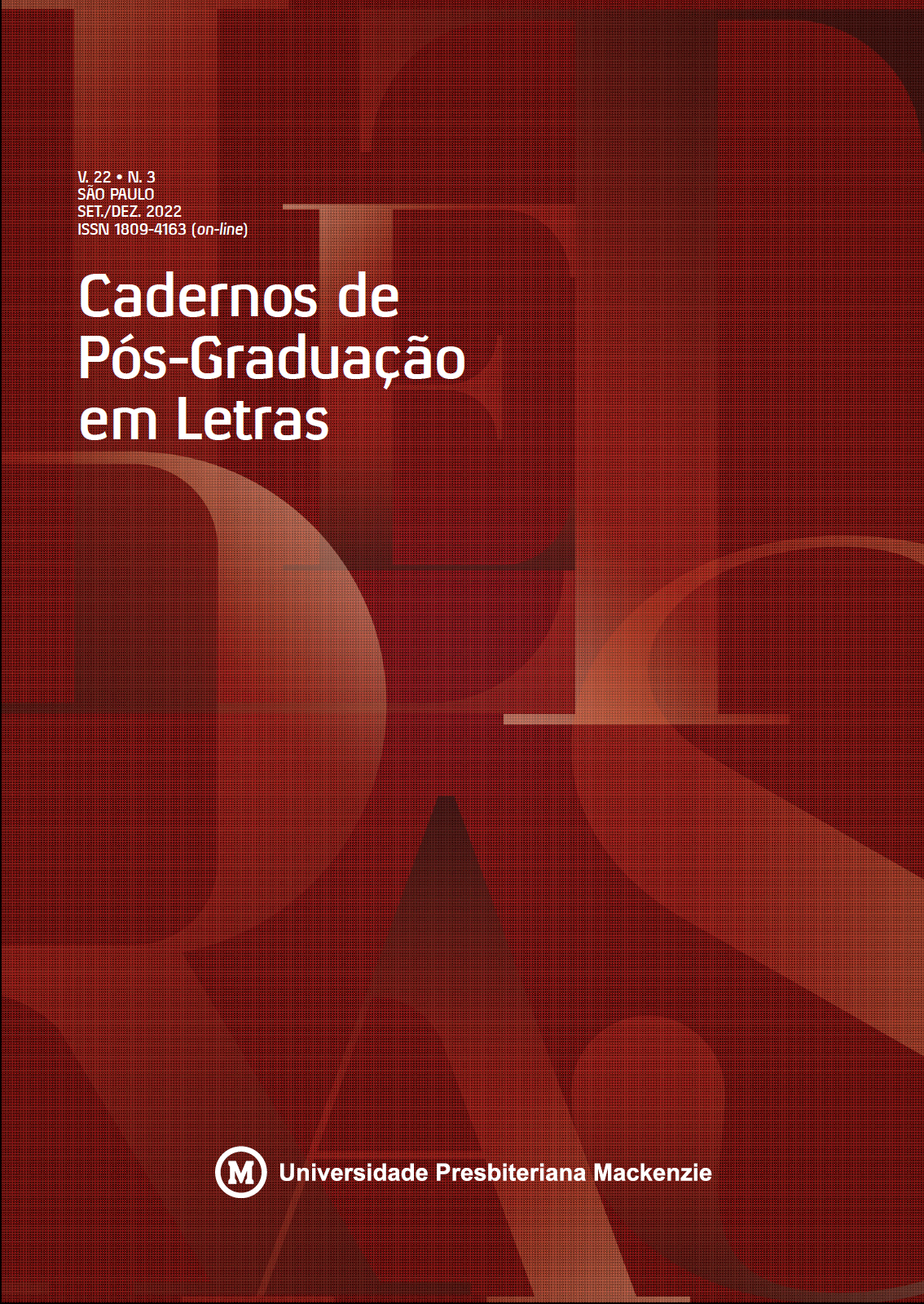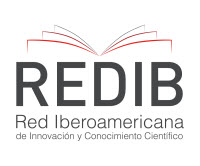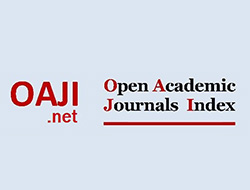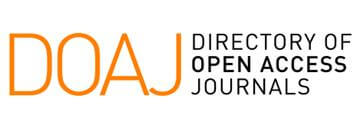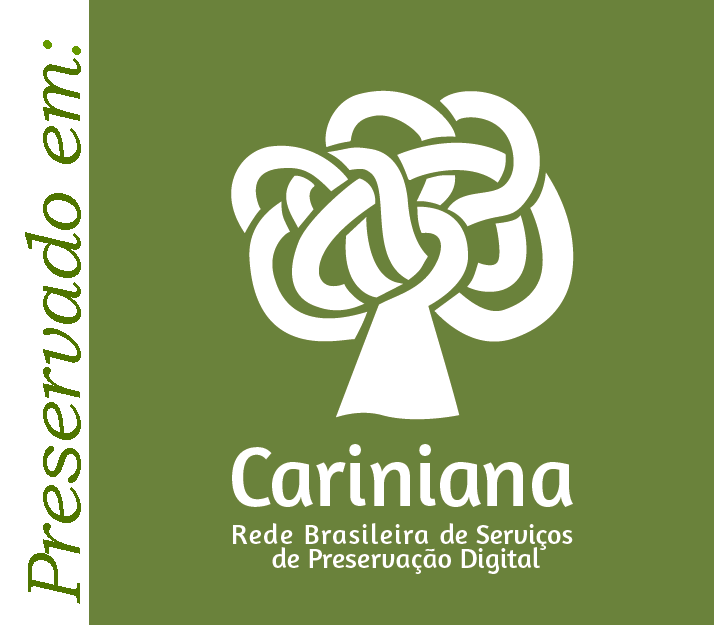The mark past perfect and its invariance on the websites Educa Mais Brasil and Brasil Escola
Keywords:
Past perfect, Theory of enunciative operations, WebsitesAbstract
The mark ‘past perfect’ is taught in schools as a past deed already completed. To help students learn, websites are recommended that address concepts and illustrative examples of gramatical usage. This article, therefore, analyzes utterances with this mark in order to understand the aspectual complexity of the past tense from the theory of enunciative operations. The corpus consists of phrases taken from the Educa Mais Brasil and Brasil Escola pages, which are internet domains used as learning tools by elementar school students.
Downloads
References
CAMPOS, M. H. C. Tempo, aspecto e modalidade. Estudos de linguística portuguesa. Lisboa: Porto Editora, 1997.
DUARTE, V. M. do N. Formas do pretérito perfeito: simples e composta. Brasil Escola, [2022]. Disponível em: https://brasilescola.uol.com.br/gramatica/formas-preterito-perfeito-simples-composta.htm. Acesso em: 15 jan. 2022.
LOPES, M. C. R. Estudo semântico do pretérito perfeito. Variações interpretativas e regularidade de funcionamento. In: REZENDE, L. M.; ONOFRE, M. B. (org.). Linguagem e Línguas Naturais: Diversidade experiencial e linguística. São Carlos: Pedro & João Editores, 2006. p. 23-39.
OLIVEIRA, F. Pretérito Perfeito. Educa Mais Brasil, 13 jun. 2019. Disponível em:
https://www.educamaisbrasil.com.br/enem/lingua-portuguesa/preterito-perfeito. Acesso em: 15 jan. 2022.
SOUSA, O. da C. e. Do conceito de representação à representação linguística do tempo. In: SOUSA, O. da C. e. Tempo e Aspecto. O imperfeito num corpus de inquisição. Lisboa: Colibri/IPL, 2007. p. 19-51.
Downloads
Published
How to Cite
Issue
Section
License
Copyright (c) 2022 Maria Vitória Martins Souza

This work is licensed under a Creative Commons Attribution 4.0 International License.
The copyright of the articles published in Cadernos de Pós-Graduação em Letras belongs to the authors, who grant the Mackenzie Presbyterian University the exclusive rights to publish the content. Total or partial reproduction is prohibited without due authorization from the Editorial Committee, except for study and research.

